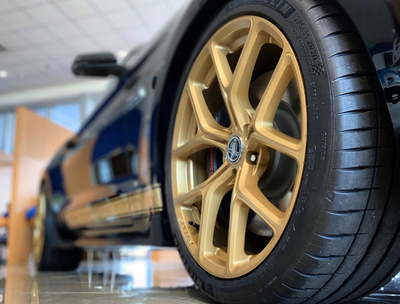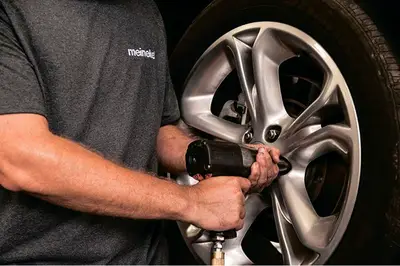Safety Tips for Wheels While Towing
 |
By Charles Farrell
Special to THE AUTO CHANNEL
When it comes to more or less regular towing, wheel safety is paramount. After all, your wheels are the driving force behind moving down the road with a trailer in tow and should always be kept in optimal condition as well as properly secured.
The text provides important tips and tricks for ensuring the safety and security of your vehicle's wheels while on the road. It covers topics such as checking tire pressure, inspecting for wear and tear, monitoring tire temperature, and using tie-downs effectively. The aim is to help readers keep their wheels rolling smoothly during their journey.
Secure the Wheels Correctly for Towing
The proper securing of wheels when towing a vehicle is crucial to ensure safety on the road. This can be done by tightening lug nuts to appropriate torque specifications, as failure to do so can lead to accidents and damage. Double-checking that lug nuts are properly tightened with a torque wrench according to the specifications is important before hitting the road, as it can make a big difference in keeping everyone safe while towing.
Inspect the Wheels Before Towing
Towing can cause extra strain on tires, leading to premature wear and tear. Inspecting the vehicle's wheels before towing is crucial to ensure safety for yourself and other drivers on the road. This includes examining for signs of damage, checking the tread depth and tire pressure, searching for loose lug nuts, and inspecting wheel bearings. Thoroughly inspecting the wheels before towing can protect your vehicle from harm and make your journey safer and smoother.
 |
Check the Tire's Safety Rating
To ensure safe towing, it's important to choose tires suitable for the weight and terrain of your cargo. Tires with a higher load-carrying capacity are recommended as they minimize sway and keep loads balanced. Look for a tire rating of 10-ply or above, and consider load capacity when selecting tires. Proper maintenance is also crucial - monitor pressure levels regularly. Additionally, pay attention to speed rating when selecting replacement tires, and opt for higher-rated tires if unsure which ones to get.


